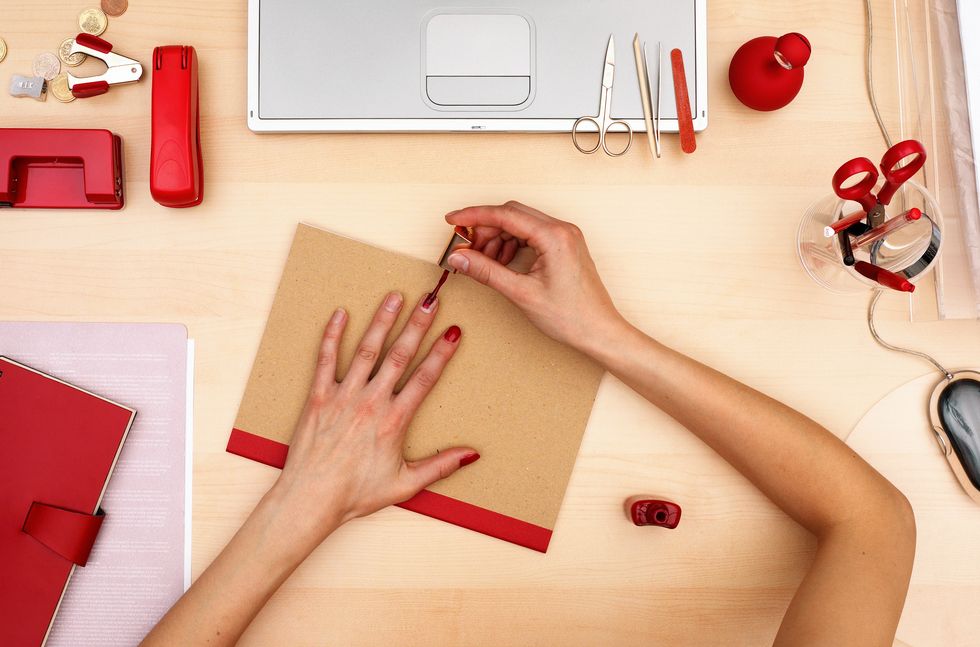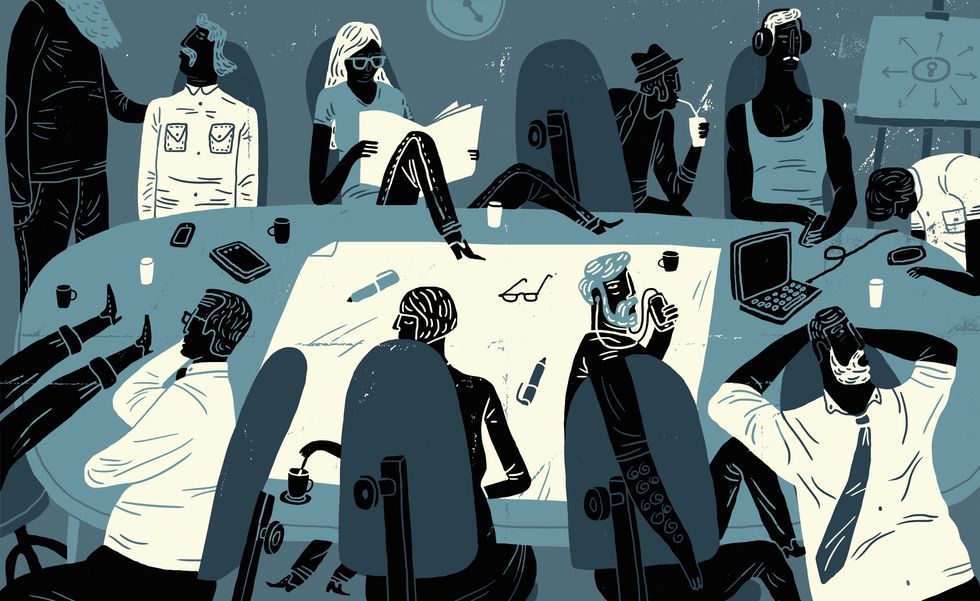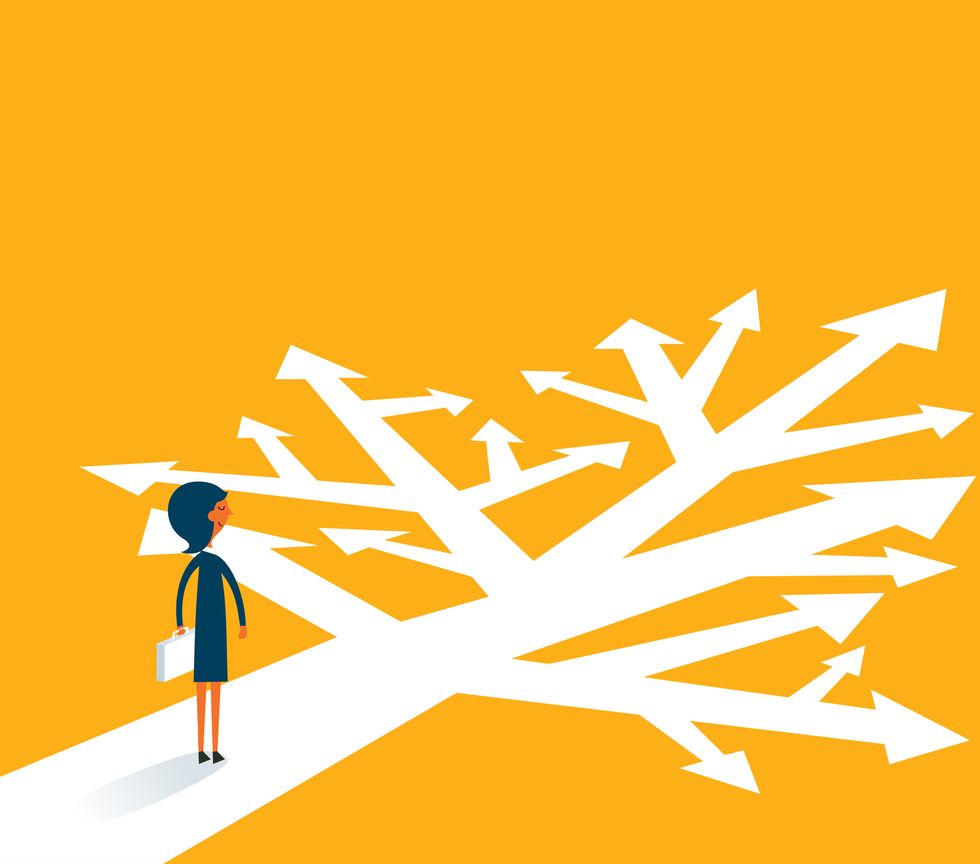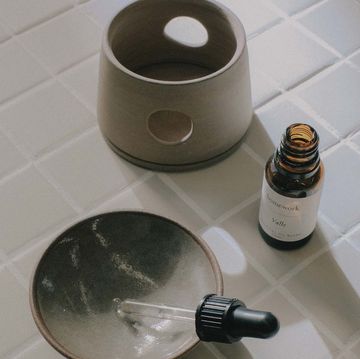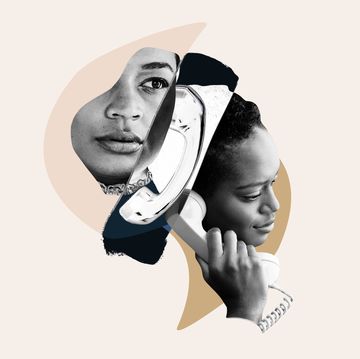Have you ever had the feeling of being so sure you won't get that dream job, you don't even bother applying?
The slimy certainty that you just can't, so you don't try. Chronic self-doubt is insidious; a sort of fungus of the mind. You're not sure how it got there or where it came from, but suddenly it's fully-formed and multiplying.
Sometimes it's not even as obvious as 'I could never run that far, so I won't even bother.' Think about the last party you went to without knowing many people, if you're anything like me you probably spent the first half edging into circles, feeling tongue-tied and self-conscious. Suddenly, though, someone appears at your shoulder and offers you a drink. With relief you pour yourself a triple measure and top it with a dash of soda. You decide to get loose. About halfway through your third glass your self-consciousness slips and you start to chat in earnest.
'Drinking to ease into social situations is one way that self-doubt manifests,' says psychotherapist Hilda Burke. 'You find yourself getting nervous, worried that you'll say or do the wrong thing, so use alcohol as a disinhibitor.'
'Every now and then isn't really a problem,' continues Burke. 'The problem is when a party without a drink is an overwhelming prospect because you simply can't relax in a crowd.'
I don't remember the last time I entered into a social situation without a wine to lubricate matters. Partly, it's because I quite like wine. Equally, though, I know that without it I'll spend half the time worrying that I'm not funny enough or smart enough or likeable enough.
Maybe that's just me. But there are other signs that self-doubt is creeping in. Feeling the need to apologise in emails, for instance ('sorry to disturb you'). Or succumbing to weird superstitions (apols, crystal fans but, like, crystals).
At the heart of these, says Dr Sarah Crawford, a chartered counselling psychologist at Nightingale Hospital, is a growing tendency towards self-doubt.
'Someone who's superstitious might think that unless they perform a certain ritual, or unless their horoscope said it, they won't pass their driving test. Well, that implies that they lack confidence in their driving ability. And they're looking for something external to give them that confidence.'
Ditto, sending apologetic emails: we fire them off without even thinking, but being apologetic implies we lack the self-confidence to say what we have to say boldly and plainly.
Procrastination which, I'd argue, our generation has turned into an artform, is another example. For instance, there's a job application we can't seem to send off because every time we sit down to finish it we end up scrolling through Instagram, Twitter and Facebook, or falling down a Wiki rabbit hole.
'It implies that you lack the belief that you can achieve your goal so you try to avoid it altogether,' says Crawford.
It's so insidious that we don't always realise the self-doubting thought pattern has taken hold. 'Those with chronic self-doubt fear rejection, failure and even fear success sometimes,' continues Crawford. 'And I'd argue that the way we live is making it harder than ever for us to trust in ourselves and overcome the negative voice.'
The Shoulds
As she explains, 'we put more demands on ourselves now than ever before. I call them the 'shoulds': 'I should get this job, I should have this body, I should live this kind of life.''
This means that we're constantly seeking validation outside of ourselves - from our peers via social media to our jobs, even in the way we exercise (I mean, yeah you did a half marathon, but did you do it in less than 1hr 50 mins?) Our whole society is geared around that idea that we need to achieve a set of standards that are dictated by someone else (like our bosses or the dictatorial trainer at our spin class); and if we don't, our achievements are somehow less meaningful.
'The problem is,' continues Crawford, 'the more we look outside ourselves for validation - by chasing likes and comparing our achievements to those of others, the less likely it is that we'll feel confident in what we have and what we've achieved. And it's sad; people don't pursue their passions because all they can think about is how it'll look to their peers when something goes wrong.'
As she points out, people who chronically self-doubt end up living half a life.
Stop the cycle
So how do you tackle it? 'Try and recognise it when it crops up,' says Crawford. 'Self-doubt is characterised by 'what ifs'; 'what if I don't succeed...' or 'what if everything goes wrong...Yes, if you ask for a promotion, you might not get it, but focusing on past failures won't help. Try and stay present.'
Stop the 'what ifs' in their tracks by holding an object - it could be anything - and thinking about it's weight, shape and size. Focus on it for a few minutes, what it is, what you use it for. This will keep your brain from spiralling into other, wilder thought patterns and bring you back to the present moment.
Then transfer that to the task at hand. 'Without thinking about the future or the past, just focus on the step-by-step process of getting the thing you want,' continues Crawford. If your mind starts to spiral again, 'you can try separating the emotions from the facts,' she says.
Write the bare-bones facts on one piece of paper ('I want a promotion, I will have a meeting with my boss etc.) and then the wild self-doubting thoughts on another ('I want a promotion but I'm scared that I won't get it, and that'll be embarrassing; everyone will think I'm no good at my job etc.') then compare the two. 'It's likely that you'll see how farfetched those fear-charged 'what if' scenarios are.'
With social situations it's a little more tricky. Focusing on the moment - even on the feeling of air on your skin - whenever you find yourself too worried about how you'll come across to pipe up with an anecdote will help you to snap out of the negative thought pattern. But ultimately it's about - to quote Burke - 'building a store of self-confidence so that even when a niggling self-doubt does crop up, you know you can handle it.'
A first step, she suggests, is actively disagreeing with your self-doubting voice. 'Just because the voice in your head tells you you'll never do something, it doesn't mean that's the truth.' Next time you find yourself thinking 'oh, I'll never deadlift that much,' counter that - 'yes I will, I just need to keep practicing,' (FYI this is one argument I often have with myself/ the trainer in the gym). A habit forms through repetition, Burke points out; if your habit is to be negative, then it takes a lot of positive reassurance to snap out if it.
'Developing self-compassion is an important first step to gaining self-confidence,' adds Crawford. 'When you find yourself saying 'no I can't,' or 'it'll never work out', ask yourself if you'd speak to a friend that way? If the answer is 'no,' then try encouraging yourself in the same way you would that friend.' Both experts point out that it's a piecemeal approach to a big problem and that tackling self-doubt in the moment is just one step.
'Ultimately, you should try and work out where your fear that you're not good enough, or that you might fail is coming from,' says Burke. She suggests keeping a journal and tracking all the times you feel your self-doubt spike. Working out what triggers it may offer a clue how you can tackle it in the future. 'At the very least, you can start to predict when it'll hit and be ready with some rational steps.'
Personally, I still find it hard. Thinking that I'm unworthy and I'll never achieve my dream career, relationship, life, whatever is the easy way out - I'm so used to thinking that way, that to fall into the pattern is like second nature. But I also know that it's counterproductive.
A friend recently let me into her trick: 'Whenever I start talking myself out of something, and listing all the negative outcomes, I take a breath and remind myself that no matter what goes wrong or what I f*ck up, I'm still a good person, and I'm still trying my best.' I liked that, I've found it fairly useful because in the end, I guess that's all we can do. Try.

